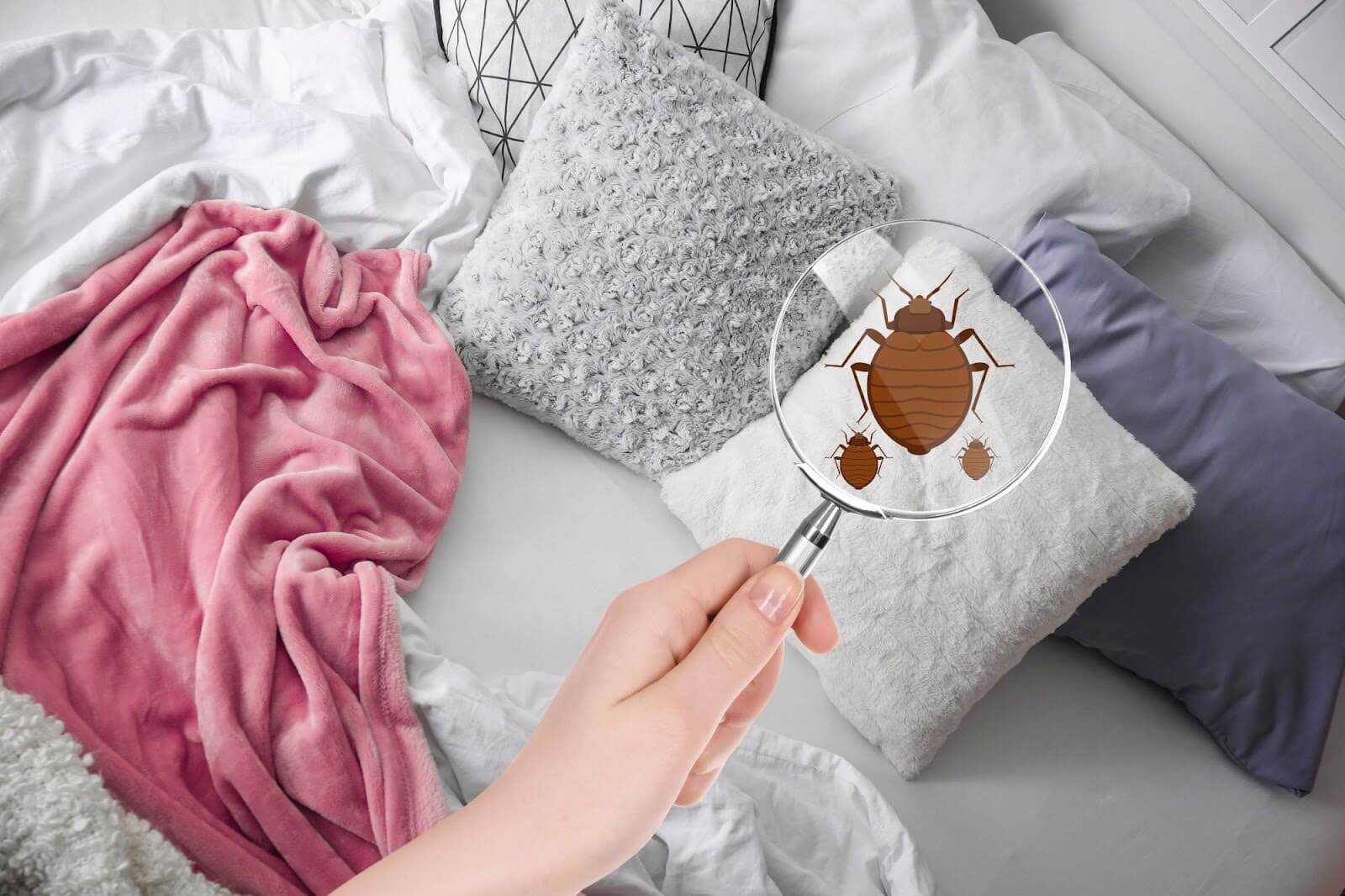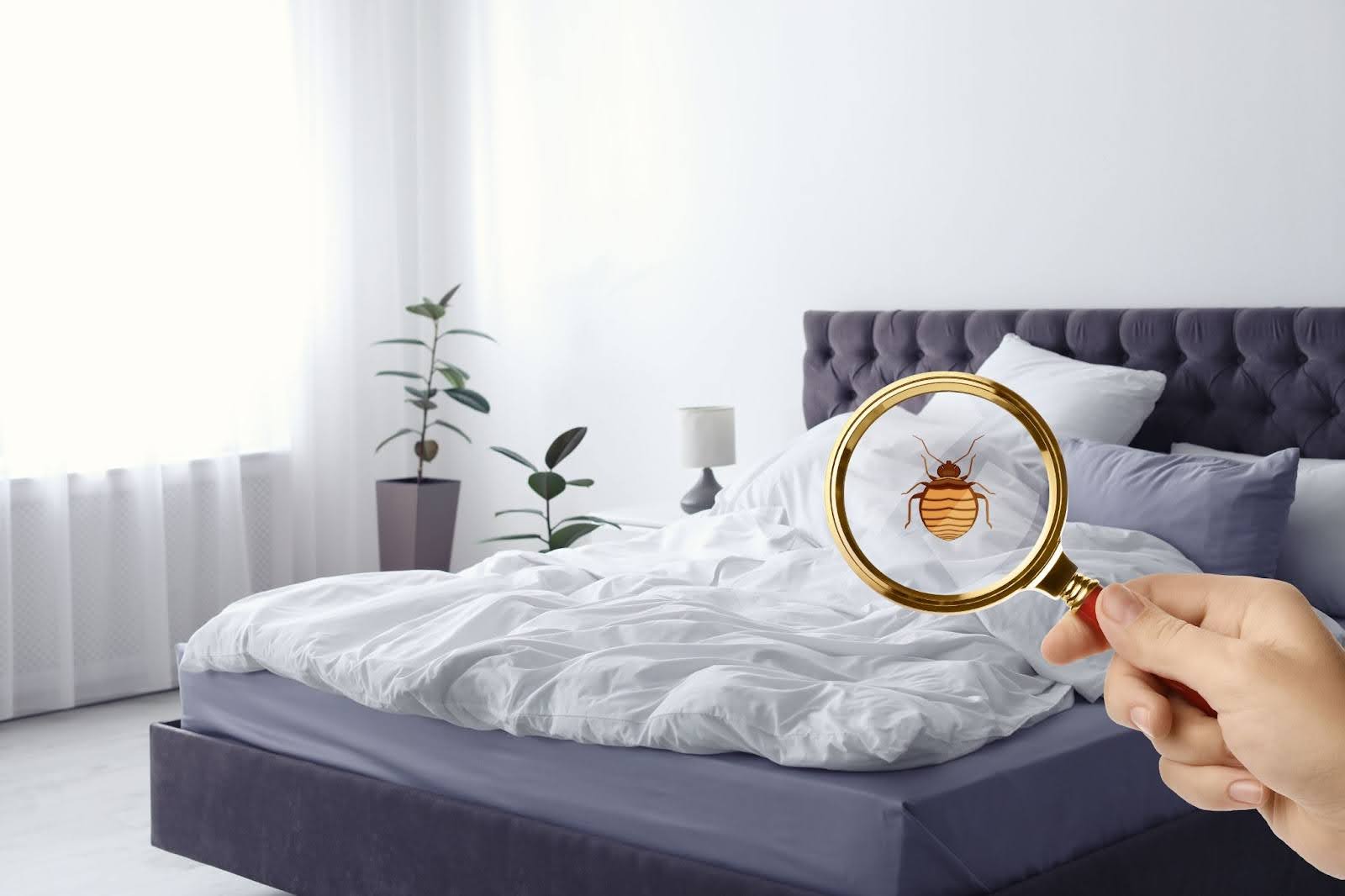Blog
Recent Posts
Can Bed Bugs Still Appear in Winter?
Posted on

While most bugs aren’t a bother in the cold months, bed bugs are able to disrupt your life even during the winter. These pests disrupt sleep, cause stress, and leave itchy, uncomfortable bites. These resilient insects have adapted well to human habitats, and because they live indoors, they are not affected by outdoor temperature changes. Having a concrete plan on how to handle them will help you stay prepared in case they try turning your home into their own. Let’s explore how bed bugs operate in colder months, the early signs of an infestation, and why all-natural treatment options from Natural Ginesis can be a lifesaver in dealing with bed bugs effectively and safely.
What Do Bed Bugs Look Like, and What Do They Cause?
Bed bugs are tiny, oval-shaped insects that feed on human blood, primarily at night. They tend to hide in warm, dark places such as bedding, furniture, carpets, and walls. Their brown appearance and small size make them look like an apple seed, although they become slightly larger and reddish after feeding. While bed bugs do not transmit diseases, their bites can cause itching, redness, and in some cases, allergic reactions. Even more troubling is the mental toll a bed bug infestation can have—people often experience stress and anxiety, along with crawling skin, particularly when they worry about the bugs spreading or reinfesting their space.
Can Bed Bugs Survive Winter?
Being highly adaptable, bed bugs are capable of surviving in various climates. They often live indoors, meaning they’re not affected by the seasonal changes that impact outdoor insects. In fact, the warmth from our heating systems during winter creates a perfect environment for bed bugs to thrive, making your home just as susceptible in winter as in summer. Bed bugs rely on humans for warmth and food. During winter, bed bugs may even spread more easily as people travel to visit friends and family for the holidays, bringing along bags and coats that could unknowingly carry a few unwanted hitchhikers.
Early Signs of Bed Bugs
The earlier you catch an infestation, the easier it will be to purge your life of bed bugs. Key signs to look for to detect their presence include:
- Itchy, Red Bites: Bed bug bites are typically small, red, and itchy. They are often found in clusters or lines on exposed skin areas, such as the arms, neck, and face. If you notice new bites each morning, it could be a sign of bed bugs.
- Small Blood Stains on Sheets: Waking to find small blood stains on your sheets or pillowcases could be due to accidentally squishing bed bugs during the night.
- Dark Fecal Spots: Bed bugs leave behind tiny, dark fecal spots, which can appear on bedding, mattresses, or furniture. These spots may smear if wiped and can also have an unpleasant, musty odor.
- Bed Bug Shells and Shed Skins: As bed bugs grow, they shed their skins multiple times. If you notice tiny, translucent shells or empty skins in the crevices of your mattress or around your bed, it’s a sign that you might have a growing infestation.
- A Musty Odor: In cases of severe infestations, you may notice a strong, musty odor. This smell comes from the pheromones released by bed bugs and is sometimes described as a sweet, almond-like smell.
How to Get Rid of Bed Bugs Fast
Harsh chemicals used in conventional pesticides have long been the standard treatment for bed bugs. These chemicals can leave residue, pose health risks to humans and pets, and may not be ideal for sensitive individuals. Instead, all-natural, effective solutions that target bed bugs without putting your family at risk are the better option.
Natural Ginesis offers an enzyme-based solution designed to target pests without harmful chemicals. Safe for both your household and the environment, Kleen Green™ is the wise choice for anyone dealing with a bed bug infestation. Kleen Green is a versatile enzyme cleaner that works effectively against bed bugs. Kleen Green uses natural enzymes to break down the protective exoskeleton of bed bugs, rendering them vulnerable and ultimately eliminating them from your space. Unlike traditional pesticides, Kleen Green is non-toxic, biodegradable, and safe to use around children, pets, and sensitive individuals. The enzyme formula works quickly on contact with bed bugs, dissolving their exoskeleton and breaking down their defenses. It can be used on mattresses, bedding, carpets, furniture, and more. This versatility makes it ideal for treating a widespread infestation. It’s also the perfect multi-purpose household cleaner with a wide variety of applications to make your purchase go further.
How to Treat Bed Bugs — Helpful Tips
- Identify Infested Areas: Focus on your bed, mattress seams, box springs, and nearby furniture. Inspect these areas carefully and make note of where bed bugs are most concentrated.
- Apply Kleen Green: Spray Kleen Green on all infested areas. Be thorough with the application, covering both the surface and hidden crevices where bed bugs might hide. Allow it to sit and dry for optimal results.
- Repeat as Needed: Depending on the severity of the infestation, you may need to repeat these treatments over several days to ensure all bed bugs are eliminated.
Preventing Bed Bugs in Winter and Beyond
Prevention is the best way to avoid a full-blown bed bug infestation. Be sure to inspect your luggage and clean your bags after traveling before bringing them indoors. Avoid second-hand furniture since these pests can hide in the material. Bed bug-proof mattress covers can prevent pests from hiding in mattresses and box springs, making it easier to keep your sleeping space pest-free.
Bed bugs can happen to anyone, even in winter, but you don’t have to rely on harsh, toxic chemicals. With all-natural solutions like Kleen Green from Natural Ginesis, you can eliminate bed bugs safely, effectively, and without compromising the health of your household. Enjoy the confidence that the infestation has been stopped in its tracks and that your family is safe from chemicals when you choose Natural Ginesis for natural bed bug treatments.

Are You Aware of These Early Signs of Bed Bugs?
Your home is your space for rest and sanctuary, so when it becomes infested with bed bugs, your place of relaxation turns into a source of discomfort, frustration, and fear. While their name suggests they live exclusively in beds, bed bugs can hide in many parts of your home. The key to tackling a bed [...]
 Loading... Please wait...
Loading... Please wait...





 South Africa
South Africa